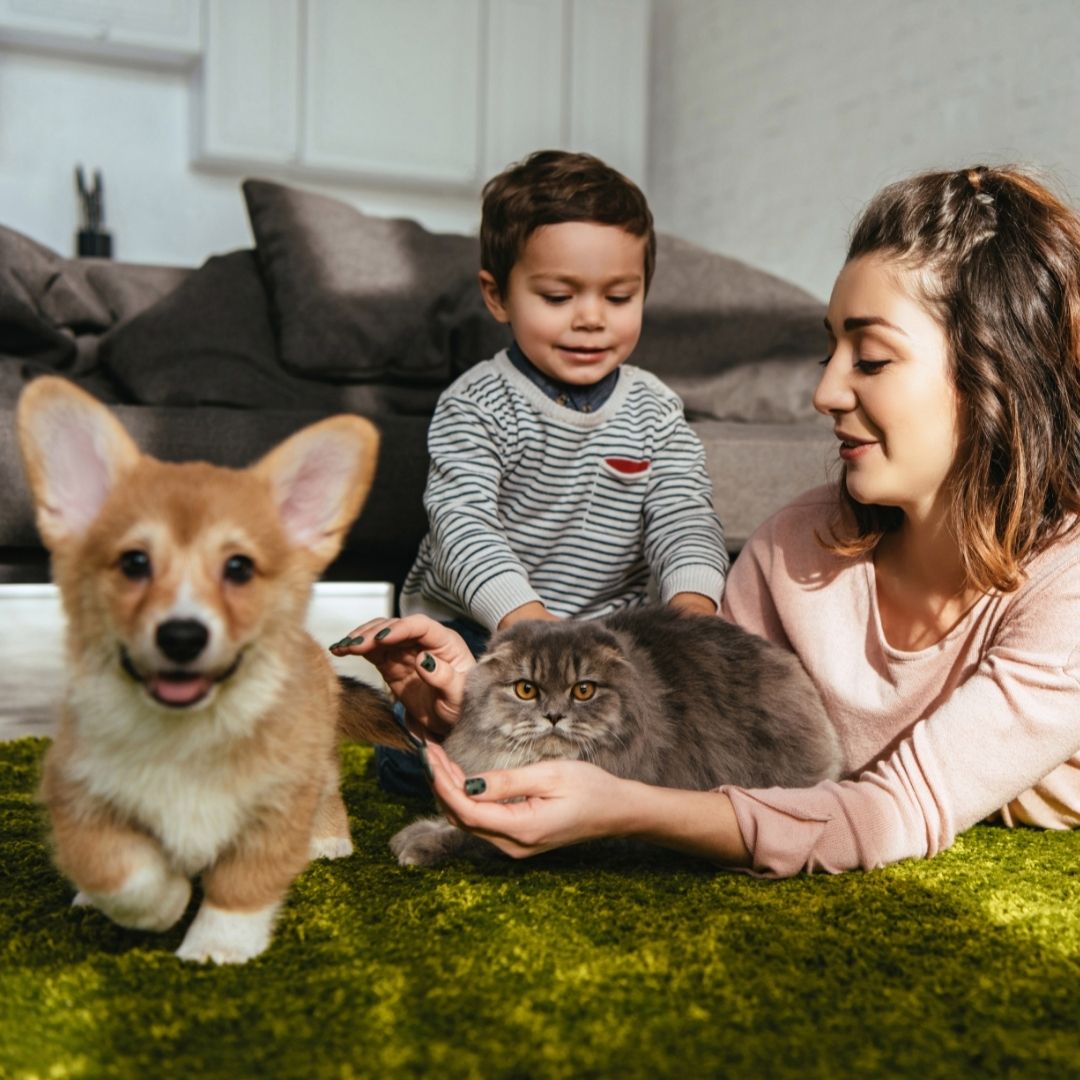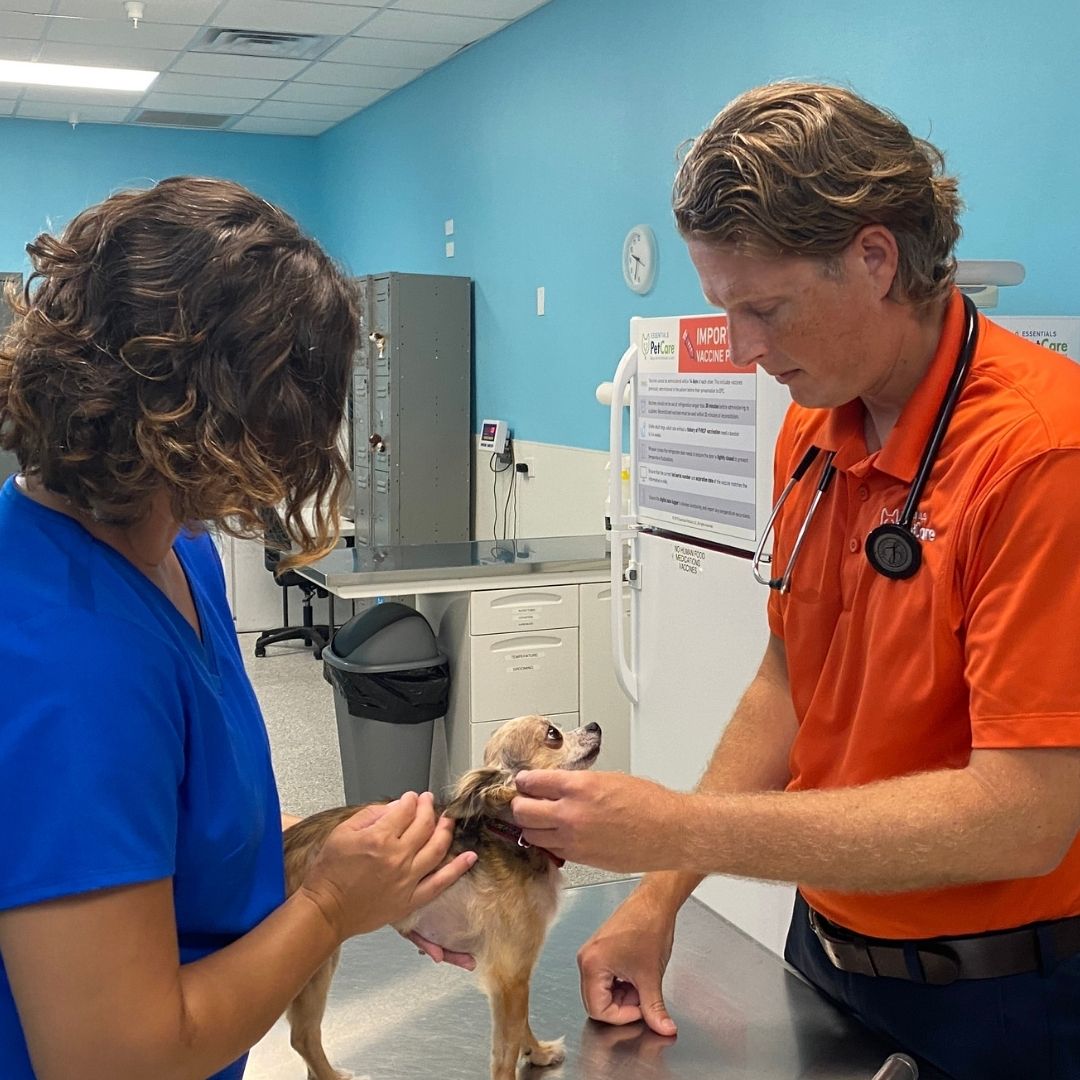Is Your Pet Anxious?
Published March 30, 2022


Do you think your pet may be experiencing anxiety? Learn about symptoms and causes of anxiety, plus a safe solution for mild anxious behavior in cats and dogs.
Anxiety Symptoms


- Shaking/shivering
- Hiding
- Aggressive behavior, including growling, baring teeth, and pinned ears
- Dilated pupils and/or increased blinking
- Increased or decreased vocalizing
- Panting and/or drooling in dogs; note: any cat who is open-mouthed panting must be taken to a full-service veterinary hospital or animal emergency hospital as soon as possible.
- Restlessness and insomnia, or conversely, depressed behavior
- Destructive behavior, like chewing furniture or other items in the home
- Repetitive actions, including constant licking/grooming
- Changes in appetite, especially a decreased appetite
- Increased shedding
- Tense, ridged muscles
- Diarrhea, vomiting, or changes in bathroom habits, such as a reluctance to use the litterbox in cats
- Tail between legs in dogs
- Fluffed and/or twitching tail in cats
Causes of Anxiety


Some pets, and certain breeds in particular, may be naturally prone to anxiety. Environmental factors and lifestyle changes may also induce anxiety, including:
- Moving into a new home/changing your pet’s environment
- Guests
- New pets or family members
- Unfamiliar smells
- Loud noises
- Living near a busy street
- Time alone as pet parents head back to the office
- Visiting places that may have negative connotations to your pet, including the groomer, veterinarian, and doggy daycare
It is important to provide your pet with regular exercise and mental stimulation to keep anxious behaviors at bay. Daily walks, regular obedience training, and engaging toys can help.
Pain and medical conditions can also cause anxiety in pets, which is why it is important to begin with a veterinary visit to get to the root of your pet’s anxiety.
Solutions


Pets with chronic or severe anxiety may need a veterinary prescription for relief, but many pets with mild or circumstantial anxiety may benefit from a simple, affordable probiotic supplement.
At Essentials PetCare, our veterinarians can prescribe Purina Pro Plan Veterinary Supplements Calming Care after establishing a veterinarian-client-patient-relationship (VCPR) with an exam. This probiotic helps pets maintain calm behavior, promotes positive social behavior, supports a healthy immune system, and helps pets cope with separation anxiety or changes in environment and routine.
Plus, Essentials PetCare clients can order ProPlan and prescription foods, supplements, and more pet supplies with FREE home delivery!



